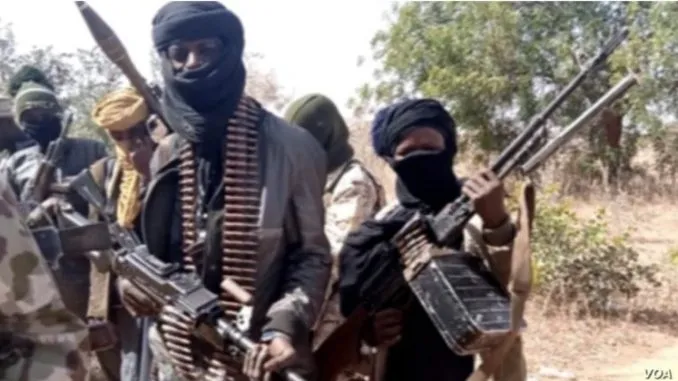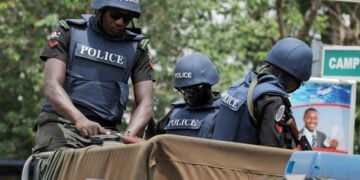Evidently, the Nigerian security forces fighting insurgency and banditry in parts of the county have been recording major gains. Regularly, the military high command, which is leading the counter-terrorism charge, gathers stakeholders in Abuja to reel out its most recent achievements, especially the many terrorists its operatives had killed or arrested and captives rescued, as well as arms and ammunition recovered.
Recently, the Strategic Communications Interagency Policy Community, under the Office of the National Security Adviser (ONSA) in Abuja, reeled out the successes recorded by the security, defence and response agencies in the last year.
The director of Defence Media Operations, Maj. Gen. Edward Buba, said troops operating in the northern parts of the country killed no fewer than 9,303 terrorists and arrested 6,998 in the last year. Also, a total of 9,562 Boko Haram/ISWAP fighters and their families surrendered to security forces. At the same time, 4,641 hostages were rescued, 1,437 suspected oil thieves were arrested, and stolen crude oil products worth N91.2bn were recovered within the period.
On its part, the police rescued 1,713 kidnap victims and recovered 1,465 vehicles/motorcycles, 2,566 firearms and 19,310 rounds of ammunition, among others.
This one-year report shows the impressive work of the security agencies in trying to contain the outlaws making life hell on earth in parts of Nigeria, especially in the North East where Islamist insurgents Boko Haram, Islamic State of West Africa Province (ISWAP) and Ansaru on the one hand, and North West and North Central where thousands of bandit cells on the other, have made the areas an active war front. In the South East, the security agencies are battling separatist violence in the form of the Eastern Security Network (ESN), the militant wing of the Indigenous People of Biafra (IPOB). In fact, there are military operations in the 36 states of the country, targeted at different kinds of outlaws.
On this page, we have consistently commended the security operatives on several occasions for their efforts to keep Nigeria safe, especially for the ultimate sacrifice some have made and continue to make in curtailing the activities of the outlaws.
However, two recent reports involving ISWAP in Borno State are a serious cause for concern. The first troubling report is that of ISWAP holding open court in some villages near Lake Chad during which it entices residents to embrace its extremist faith and enlist in its bloody cause. In viral pictures, masked terrorists are seen preaching to the hapless residents to support their effort to establish a caliphate, promising them good governance, better security and the provision of basic amenities once they establish their new country. They also distribute welfare packages to households in their recruitment drive.
The second worrisome development is the terrorists’ issuing inhabitants of Kukawa local government area of Borno State a two-day deadline to vacate their communities, or face death. According to the report, many of the residents are relocating to Monguno to escape the terrorists’ wrath.
The notice came barely a week after the terrorists killed 35 fishermen in Tubum Rogo community, leaving 25 people injured and 30 others missing.
The residents are said to have been coexisting ‘peacefully’ with ISWAP terrorists for over a year before the present row after the terrorists accused residents of betraying them to security agents. In their reaction, the terrorists invited the residents to a religious meeting, but instead opened fire on them.
The official response to the SWAP quit order was the usual dismissive wave of the hand: Abubakar Abdullahi, chief military public information officer in Lake Chad, described ISWAP’s threat as a “blatant act of intimidation, a desperate move by a group on the verge of defeat.” He asked the communities to “remain steadfast, vigilant, and confident in their safety.”
As a newspaper, we are deeply concerned that so many communities in Nigeria are living at the pleasure of terrorists despite all the military gains in the anti-terror war. Kukawa LGA is said to be a fishing and farming district. It is reported that apart from the troops’ locations in Kukawa, all other locations are occupied by ISWAP terrorists. In January, the terrorists reportedly severed the hands of two fishermen following a theft accusation in the Marte area of Borno.
In many parts of the North, farmers and fishermen have to pay taxes to terrorists to access their farms and fishing areas; otherwise, they are slaughtered in the most brutal manner. The urgency of the situation cannot be sufficiently emphasised. Nigeria needs to win both the ideological and military war before it can fully dispense with ideological terrorists like ISWAP.
Reeling out figures of neutralised, surrendered or arrested terrorists, and dismissing their bloody attacks with a wave of the hand will not end the insurgency war that has already gone on for too long.
Obviously, in our view, Nigeria cannot afford an endless war. The country is already going through an economic crisis and cannot afford the quantum of resources spent on fighting the insurgents. The Office of the National Security Adviser, in conjunction with the military high command, needs to come up with a strategic plan, with deliverable timelines, to stamp out these terrorists, but this cannot be achieved without cutting off the terrorists’ supply chain, both in terms of manpower and funds.





